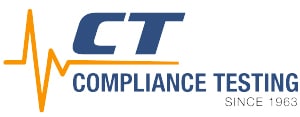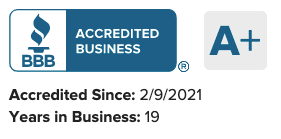In the United States, electronic devices are required to comply with Federal Communications Commission (FCC) regulations, such as FCC Part 15, in order to get the FCC mark and enter the market.
Achieving compliance with FCC Part 15, FCC Part 18 and similar regulations involves carrying out lab testing for your device to verify that it operates within FCC limits for radiated emissions, conducted emissions and general electromagnetic compatibility (EMC) requirements.
Most of the time, achieving FCC equipment authorization involves testing your device in a lab and working with your lab partner to receive certification.
Does the FCC allow you to self-certify your device? Although lab testing is required for devices sold in the United States, you may be able to receive authorization via a Supplier’s Declaration of Conformity (SDoC) in certain cases.
The Declaration of Conformity process can reduce the costs of equipment authorization for your device, allowing you to go to market at a lower cost and on a faster schedule. However, it is not available for all devices, and there are some restrictions on the process itself.
Below, we’ve explained what FCC certification is, as well as how certification differs from SDoC equipment authorization. We’ve also discussed the steps involved in getting FCC authorization for your device through certification or a Declaration of Conformity.
For more information about FCC equipment authorization, or to request a quote for testing and certifying your device, contact us online or call us at 866-540-5287.
What is FCC Certification?
FCC certification is a process from the Federal Communications Commission that shows your electronic device complies with federal standards for electromagnetic interference (EMI).
EMI is any type of interference that’s caused by an electronic device’s emissions. Devices can produce radiated and conducted emissions, which can disrupt the operation of other devices in a shared space.
When severe, emissions can cause other devices to lose their communications signal, produce inaccurate measurements and readings, or stop working completely.
The FCC sets standards to ensure that both consumer and industrial electronic devices do not cause interference. These standards help to promote electromagnetic compatibility (EMC) and promote the safe, compliant operation of electronic devices in the United States.
The process of FCC certification involves a series of lab tests to assess your electronic device’s electromagnetic compatibility. These lab tests measure your device’s emissions and its ability to withstand emissions from other devices (referred to as immunity).
Certification is one of two options for gaining equipment authorization for your device. It’s often used for intentional radiators — devices that are designed specifically to use the radio frequency spectrum for communication.
Examples of intentional radiators include cellular devices, remote controls, Wi-Fi equipment and devices that use Bluetooth technology.
Is it Possible to Self-Certify Your Device?
Although it’s not possible to get FCC certification on your own, it is possible to “self-certify” your device and receive equipment authorization from the FCC. However, there are several caveats to this process, and it isn’t suitable for all devices.
The “self-certification” process isn’t actually FCC certification. Instead, it involves completing the Supplier’s Declaration of Conformity process and receiving authorization from the FCC for your device by stating that it complies with all relevant regulations.
The Supplier’s Declaration of Conformity process is faster and significantly less expensive than the process for FCC certification. It’s typically only available for devices classed as unintentional radiators by the FCC.
Unintentional radiators are devices that generate radio frequency energy as a byproduct of their normal operation, but aren’t designed specifically to emit radio frequency energy.
Examples of unintentional radiators include computers, power supplies, lighting systems, office equipment, televisions, USB devices and electronic musical instruments.
Declaration of Conformity vs. FCC Certification
The Declaration of Conformity and FCC certification processes both result in authorization from the FCC for your device. However, there are significant differences between the two processes, from the time involved to the specific steps required for authorization.
To receive authorization via a Supplier’s Declaration of Conformity, you’ll need to complete lab testing for your device. After testing your device to verify that it’s compliant, you’ll prepare your documentation and submit your Declaration of Conformity to state your device is compliant.
Your business will then be liable for your device’s compliance. The FCC regularly tests devices on the market and may fine businesses that market non-compliant devices.
The FCC certification process is more stringent. This process involves testing your device in an accredited testing laboratory that’s recognized by the FCC, then working with a TCB to obtain a Grant of Equipment Authorization.
After completing the testing process and receiving a Grant of Equipment Authorization from the FCC, your device will be granted an FCC ID. This ID needs to be displayed on the product and its packaging, along with the FCC mark, to demonstrate compliance.
In both cases, you will need to maintain records of your compliance to demonstrate your device is fully compliant with all requirements under FCC Part 15.
How the Declaration of Conformity Process Works
Getting your electronic device FCC certified is a critical step in bringing it to market. The exact process can vary based on whether your device can be self-certified using the SDoC process, or if it requires FCC certification.
Here’s a simplified overview of the Supplier’s Declaration of Conformity process works:
- Determine the appropriate standards for your device. Most devices are regulated under FCC Part 15 or FCC Part 18. Before you start the compliance process, you will need to determine which FCC rules and standards apply to your device. Our team of engineers and compliance experts can help you to identify the appropriate standards for your device. Feel free to contact us for personalized assistance.
- Test your device in an accredited laboratory. Your device must be tested for proper FCC compliance in an accredited laboratory. Testing involves measuring your device’s emissions and immunity to electromagnetic interference from other devices. As an ANSI-accredited electronics testing lab, we can complete FCC testing for your device and help you make progress towards SDoC self-certification.
- Compile your test documentation. In order to receive equipment authorization via the SDoC process, you’ll need to prepare a document that demonstrates FCC compliance, lists your manufacturer name, and provides other information about your device. Our team can assist you in preparing all documentation for the Supplier’s Declaration of Conformity.
- Affix the FCC mark to your device. By law, electronic devices must be labeled with an FCC compliance mark. Our guide to FCC labeling discusses how your electronic device and its packaging must display the FCC mark for proper regulatory compliance.
- Maintain records and monitor compliance. Following the SDoC process, you’ll need to maintain records of your device and monitor compliance. If you make any changes to your device, you may need to re-complete the testing and self-certification process.
Contact Us for Help With FCC SDoC Certification
Self-certifying your device through the Supplier’s Declaration of Conformity process can greatly reduce the cost of FCC testing and compliance. However, it’s not suitable for all device types or businesses, particularly devices that are classed as intentional radiators.
As an ANSI-accredited testing lab, we’ve helped hundreds of businesses and individuals pass lab testing and achieve compliance with FCC Part 15 and other regulations for devices, giving the FCC mark and allowing legal market access in the United State.
To request a free quote for testing and certifying your device, or to ask our engineers a question about the compliance process, contact us online or call us at 866-540-5287.



